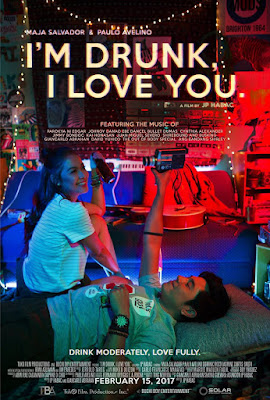THE GREATEST MOVIE EVER SOLD (Morgan Spurlock)
Documentary filmmaker Morgan Spurlock has a knack for presenting important issues with insight and humor unlike any other. In cinematic style, he is closest to Michael Moore, yet Spurlock's distinguish characteristic is his attack on the issues as an average joe, apart from Moore which has been solidified as an instigator, or a provocateur if you will.
In SUPER SIZE ME, Spurlock set out to probe Mcdonald's (and other fast food chains as well, but mostly Mdconald's) effect on American consumerism, obesity, and culture in general; in WHERE IN THE WORLD IS OSAMA BIN LADEN, he attempted to locate the known terrorist by actually mounting a physical search, to answer his own speculations and show that the search for answers doesn't end by asking; in his third major film, he deconstructs movie advertising via the context of content synergy by actually allowing advertisers to be a part of his movie.
I think Spurlock achieved a lot with this film; the structure itself is ingenious- the film incorporates his attempts to gain advertisers, while getting insights from various people on the effect of advertising to mass media content. All the while, we learn of the tedious process and the shocking truth (well, if you're working in the media this is old news to you, but the presentation is still engaging) behind closed doors, during concept meetings where a media content has done countless overhaul before it reaches its target audience.
By actually allowing advertisers, especially little known companies like POM WONDERFUL and SHEETZ (I'm not an American so they're practially new to me, compared to MINUTE MAID and WAL-MART) get face time on his film, Spurlock maintained credibility by actually putting sponsors whose ideals he also believes in. To bring the claim closer to reality, he also has big names in his shoulder like Jet Blue Airways and Hyatt. Presentation-wise, THE GREATEST MOVIE EVER SOLD succeeds as a satire because it doesn't easily denounce or glorify brand synergy in movies. Spurlock presents some bad taste advertising examples throughout the film, and balances the equation by actually presenting that not all faceless corporations are greedy.
In the end, the thesis statement most probably is that advertising, like any other forms of mass communication is pervasive; it will never go away. The trick is to be able to discern genuine content from advertising, because advertising can also provide an added flavor to media content, like a movie, but it can also just be plain shameless plugging.
Good case: FedEx in CAST AWAY. Tom Hanks works at FedEx, where life is run by the clock. Hence, Hanks' character is also run by the clock; in an ironic setup, the latter part of the film takes place in an island where Hanks has plenty of time to do nothing. Take away FedEx and CAST AWAY may not be as powerful. (note, FedEx can also be DHL, or any other cargo company) because it serves as a satirical device for highlighting Hanks' character's struggles.
Bad case: CHUNKEE Corned Beef in FENG SHUI. Somewhere, Kris Aquino and Star Cinema has rotting stash of corned beef compliments of the movie's box office success.
Disclaimer: Both films did not appear on the documentary being reviewed, and were mentioned for analysis purposes only.
RATING: 5/5

Comments
Post a Comment